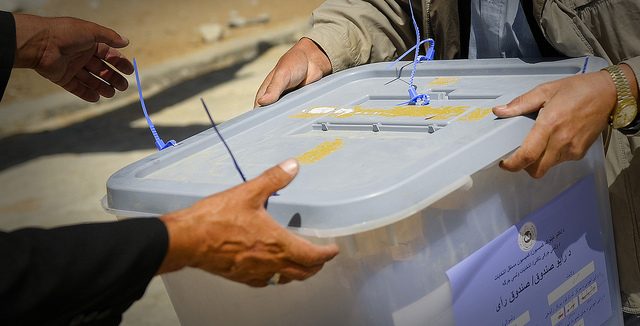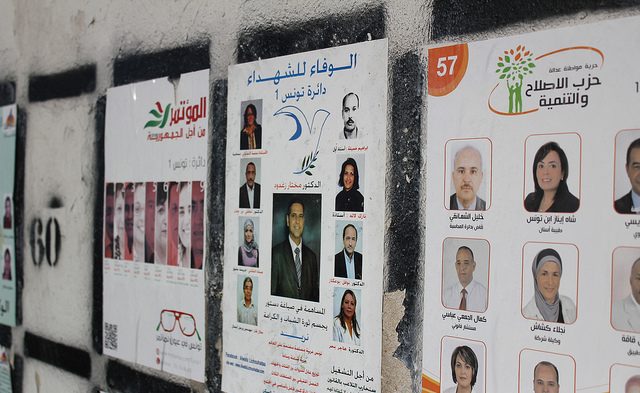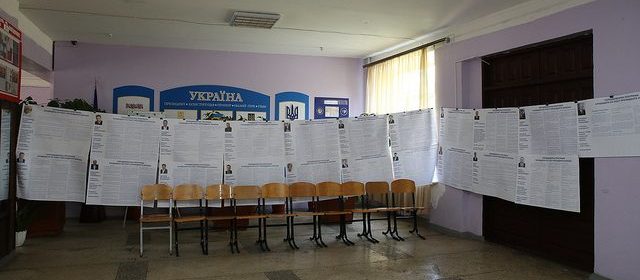
2018 had been a difficult year for liberal institutions and trade freedom. Relations between the United States and the European Union reached a breaking point over tariffs, protectionist politics, and unilateral decisions by US President Trump to withdraw from the Paris Climate Accord and the Nuclear Agreement with Iran. Moreover, the threat of a trade war between the United States and China still looms large as well as the risk of a military escalation between NATO and Russia in Eastern Europe. What will the future hold for 2019?
Among key events to watch, elections are always a safe bet – even more so, when they don’t necessarily meet the condition of being fair and free. While research has shown that especially transitioning states are prone to conflict and violence, even for developed democracies, 2019’s election cycle could bring instability and increase the level of local political risk for international businesses and supply chain management.

On the African continent, leaders in regional powers Nigeria and South Africa seek re-election while facing enormous challenges not only within their own parties. Almost 60 parliamentarians of his own party have abandoned Nigeria’s President Muhammadu Buhari in the past months and his South African counterpart, Cyril Ramaphosa, has inherited an African National Congress (ANC), still recovering from the corruption scandals of the Zuma Era. Both states face substantial domestic problems, including economic recession, unemployment, and corruption. Regarding Nigeria’s already high levels of political violence, falling oil prices could make matters even more difficult. Elsewhere on the continent, previously positive trends of democratic transitions could be reversed and even lead to further violence: In the Democratic Republic of Congo, ongoing delays, controversies, and even internet outages, in the context of elections scheduled for 2018 could lead to new violence. The stakes are high and it remains uncertain if President Joseph Kabila, his preferred successor Emmanuel Ramazani Shadary and the opposition will eventually manage to make the first transfer of power from one elected president to another a peaceful one. Even in Tunisia, where parliamentary and presidential elections are due to be held in late 2019, a backsliding into instability and resumed political strife is not unthinkable: Just recently, the President Beji Caid Essebsi ended the Nidaa Tounes party’s coalition with the Ennahda party amid a power struggle between his son and party leader Hafedh Caid Essebsi and prime minister Youssef Chahed.

Even in Tunisia, where parliamentary and presidential elections are due to be held in late 2019, a backsliding into instability and resumed political strife is not unthinkable: Just recently, the President Beji Caid Essebsi ended the Nidaa Tounes party’s coalition with the Ennahda party amid a power struggle between his son and party leader Hafedh Caid Essebsi and prime minister Youssef Chahed.
In southern Asia, 1.34 Billion Indians and 264 Million Indonesians are heading to the polls in parliamentary and presidential elections this year. Can India’s Prime Minister Narendra Modi and the Bharatiya Janata Party (BJP) repeat their 2014 landslide win despite growing frustration over unfulfilled promises e.g. on healthcare reform? Also in Indonesia, the incumbent President Joko Widodo, admired by some as the country’s own Barack Obama, has promised much in his first term since 2014 but governance reform and human rights records – his efforts could be further impeded by a recent tsunami displacing over 30,000 people and destroying nearly 3,000 houses. Another G20 member, Argentina, which received the largest IMF loan in history earlier this year, faces the dangerous combination of high unemployment, economic recession and erosion of public trust in the country’s political elites when heading to Presidential elections in October 2019. The economic turmoil and the failure of President Mauricio Macri to fulfill his promise of zero inflation raised his predecessor Cristina Fernandez Kirchner’s hopes for a triumphant return to office, yet many Argentinians continue to see her as the main culprit for the current situation.
Another G20 member, Argentina, which received the largest IMF loan in history earlier this year, faces the dangerous combination of high unemployment, economic recession and erosion of public trust in the country’s political elites when heading to Presidential elections in October 2019. The economic turmoil and the failure of President Mauricio Macri to fulfill his promise of zero inflation raised his predecessor Cristina Fernandez Kirchner’s hopes for a triumphant return to office, yet many Argentinians continue to see her as the main culprit for the current situation.
Last but certainly not least, political risks could increase in Europe especially in the first months of the year. In March, the United Kingdom is about to leave the European Union, so far without a coherent, well-thought-out and ratified plan – both a no deal scenario and a second referendum on the Brexit are no longer seen as impossible.
The same month, voters in Ukraine head to the polls to elect a new President – or confirm incumbent Petro Poroshenko. While structural issues like corruption and economic uncertainty are high on the electorate’s agenda, the recent escalation between the Ukrainian and Russian navy in the Azov Sea and the subsequent invocation of martial law in some provinces, underline the fact that the conflict with Moscow remains a major source of uncertainty.

With populism and nationalism on the rise in several European states, the elections to the European Parliament could catapult what had been fringe parties in the past to the center stage of European politics in May. A new President to the European Commission, once elected, will face a number of extremely difficult and complex tasks, ranging from a decline in liberalism in Hungary and Poland to a steadily worsening budget confrontation with Italy.
The most consequential election for political risk in 2019 is one not to be held in the next twelve months. And yet, the campaign for the 2020 Presidential elections in the United States has already begun with November’s midterm elections for Congress. Incumbent Donald Trump has not managed to end speculations and even investigation into potential collusion with Russia during the 2016 campaign and frequent cabinet reshuffles and resignations give the impression of his administration as a revolving door rather than steady management. The President’s attempts to mobilize his Republican voter base while facing a Democrat majority in the House of Representatives unwilling to support his “America First” Policy, might include new anti-Trade politics, a tougher stance on migration and further erosion of Washington’s relations with long-standing allies. With major transitions in Trump’s national security team looming large, a government shutdown enhances uncertainty already at the very outset of 2019 and concerns political allies and trade partners alike.
This overview of the election cycle of 2019 shows that the level of political stability and even local security prior to upcoming parliamentary, presidential and local elections will shape their outcome and aftermath to a large extent. Companies aiming to safeguard economic interests and partnerships and adjust risk management strategies to post-election scenarios ranging from fulfilling nationalist campaign promises to violent unrest, are well-advised to make themselves familiar with the national, subnational, and local context and conditions of upcoming votes, historical patterns of power transfer and interests as well as limitations of competing candidates. In addition to in-depth analysis on many of the countries mentioned above, CONIAS experts have developed scenarios specifically addressing elections and potential tensions, risks, and challenges for companies operating or investing in 25 countries from Argentina to Ukraine.
You travel, trade and invest internationally and want to know more about political risks? Subscribe to our Newsletter to stay up to date on global developments and company news or get in touch with us directly for tailor-made consulting and data solutions - we look forward to hearing from you!



